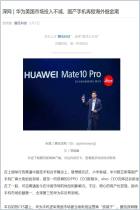
Recommendation
In the aftermath of Xiaomi’s 2018 IPO on the Hong Kong Stock Exchange, reporters Zhang Jun and Chen Qin of Caijing Magazine retrace Xiaomi’s corporate development and assess the company’s strategy for the future. The company’s decision to embrace and invest in the Internet of Things (IoT), they explain, may help set it apart from the smartphone competition. The article doesn’t explain how the company’s own Internet services will tie into Xiaomi’s grand plans, given that the branch makes up 8.6% of total revenue but 39% of total profit. Nonetheless, getAbstract recommends this article to entrepreneurs, bankers, people in the tech industry and businesspeople with interests in the Chinese market.
Summary
About the Authors
Zhang Jun and Chen Qin are a reporters for Caijing Magazine, a leading financial news outlet in China.

























Comment on this summary or 开始讨论